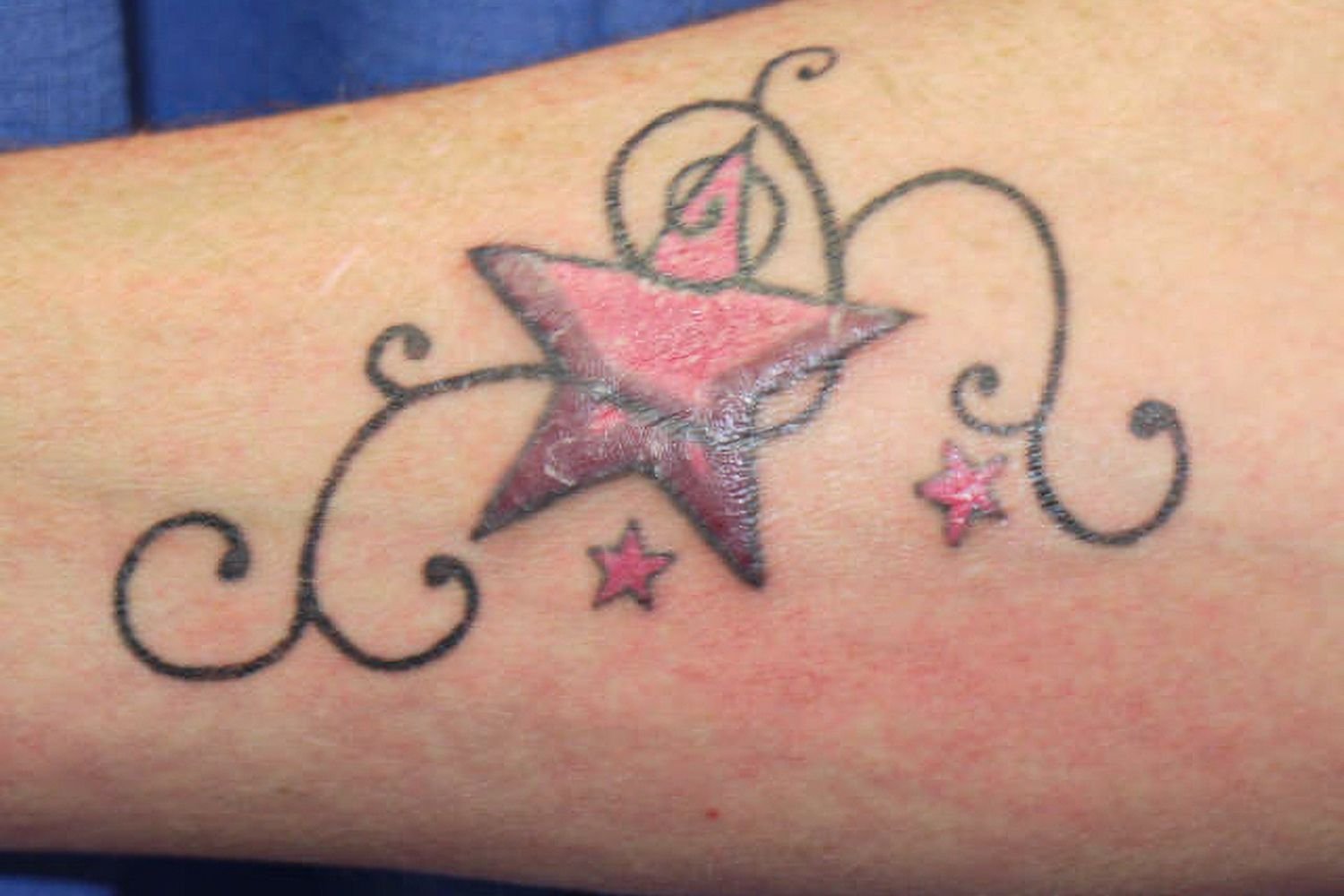

Fortunately, experiencing a severe reaction after a tattoo procedure is relatively rare. However, it’s important to familiarize yourself with the indicators of infection or allergic response as a precautionary measure. Remember, if you have any concerns, always seek medical attention immediately.

While feeling a little off after getting a large tattoo is common, experiencing flu-like symptoms while your tattoo is healing could mean an infection. It could also indicate that your skin is having an allergic reaction to the ink. Seek medical advice immediately if this happens to you.
It is normal for a tattoo to remain red for a few days after the initial session. However, it becomes a cause for concern if the redness does not reduce or even gets worse. Seek medical advice if this happens to you. Redness accompanied by worsening pain is a cause for concern.
If your tattoo continues to ooze after a few days, you should consult your doctor. This is especially true if the discharge is smelly or green-to-yellow in color. These symptoms are usually a sign of infection.
While your tattoo may swell initially, this swelling should reduce within a few days. If the swelling persists, talk to your doctor as you may be having an allergic reaction to the ink.
If you develop a rash or hives after getting a tattoo, or if your skin becomes extremely itchy, consult your doctor. These symptoms are a sign of an allergic reaction. Allergies to ink can sometimes appear months or years after getting a tattoo.

In short, the post-tattoo period may seem overwhelming with various instructions to adhere to. However, this is a temporary phase that only lasts for a few weeks. Ensuring proper care for your tattoo and diligently following the tattoo aftercare guidelines of your tattoo artist is essential during this crucial period. Ultimately, following these instructions will result in a stunning, long-lasting tattoo that will be a cherished part of your body for the rest of your life.